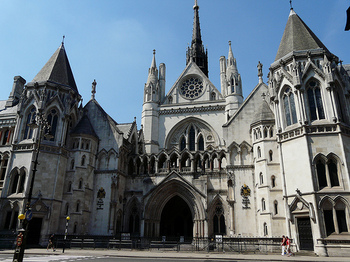Rise of the superinjunction: why libel reform matters to journalism
By Ewan Palmer and Patrick Smith
The shark-infested waters of UK media law could be about to get a little safer, thanks to Ministry of Justice reforms to curb extortionate lawyer success fees earned through "no win no fee" conditional fee arrangement cases (CFA).
But Jack Straw’s quick-fire legislation (read the responses to the consultation here, in pdf format) has failed to win enough support to pass in the pre-election bill "wash-up" and reforms will now fall on to the next government, whoever that is…
We discuss this and more at the Frontline Club on Tuesday April 13, science writer with Simon Singh, Guardian investigations editor David Leigh, Carter Ruck partner Nigel Tait and David Hooper, from Reynolds Porter Chamberlain. Helping us make sense of all this is our chair Clive Coleman, presenter of BBC Radio 4’s Law in Action programme. Book here for tickets.
But until then, here’s out brief primer on what’s afoot in media law reform…
Defamation lawyers can currently charge a success fee in CFA cases of 100 percent of the total costs – effectively meaning lawyers double their fees, leaving defendants with a massive bill to pay, often even if they succeed in defending the case. Jack Straw’s proposals would introduce a success fee cap of ten percent.
The law firms argue that they need to charge high fees to counteract the risk of losing in a CFA case – but thanks in to the UK’s case law-based system and the burden of proof being placed on the defendent, very few libel writs fought and won by media bodies in the High Court.
CFAs: a necessary evil?
CFAs were introduced to help people who can’t afford expensive legal fees to sue for libel, which is one reason some MPs like Labour’s Tom Watson voted against this latest law change proposal.
But what started out as an admirable policy has since been abused by those who can afford to pay their own fees. As law firms choose not to take on difficult cases, both smaller and large media bodies are experiencing what they would call a "chilling effect" on their journalism; many would rather settle out of court than face the crippling expenses that would occur if they fought the case.
Libel Tourism
The current libel laws means it is possible for statements published abroad – but visible to a UK audience somehow – abroad to be the subject of a writ. This has the effect of attracting people with little connection to the UK to London’s High Court to settle their disputes and protect reputations.
As The Times’ legal editor Frances Gibb puts it, London is now the libel capital of the world, being the scene for many cases brought by businessmen and companies from countries where such stringent laws don’t exist.
